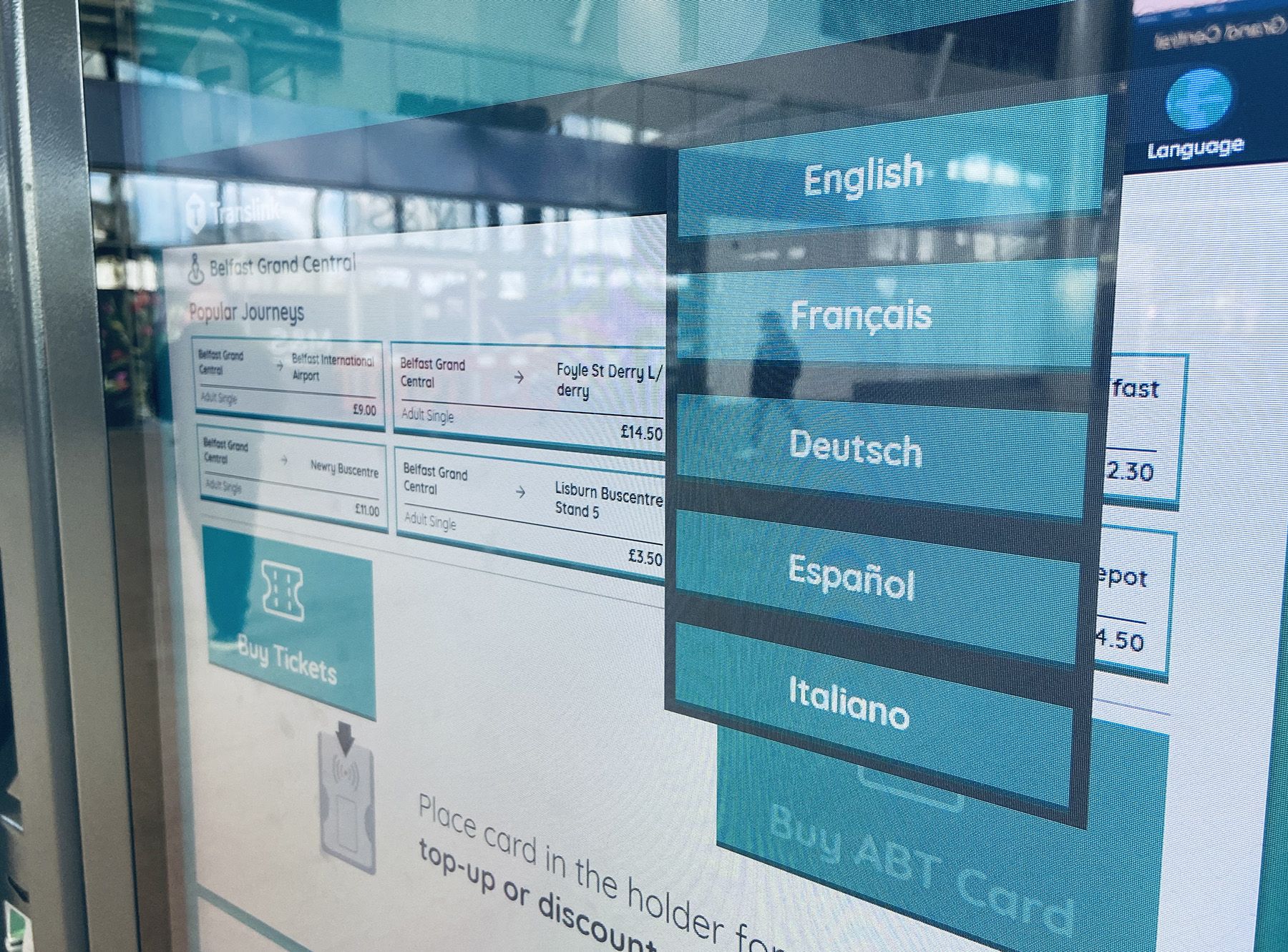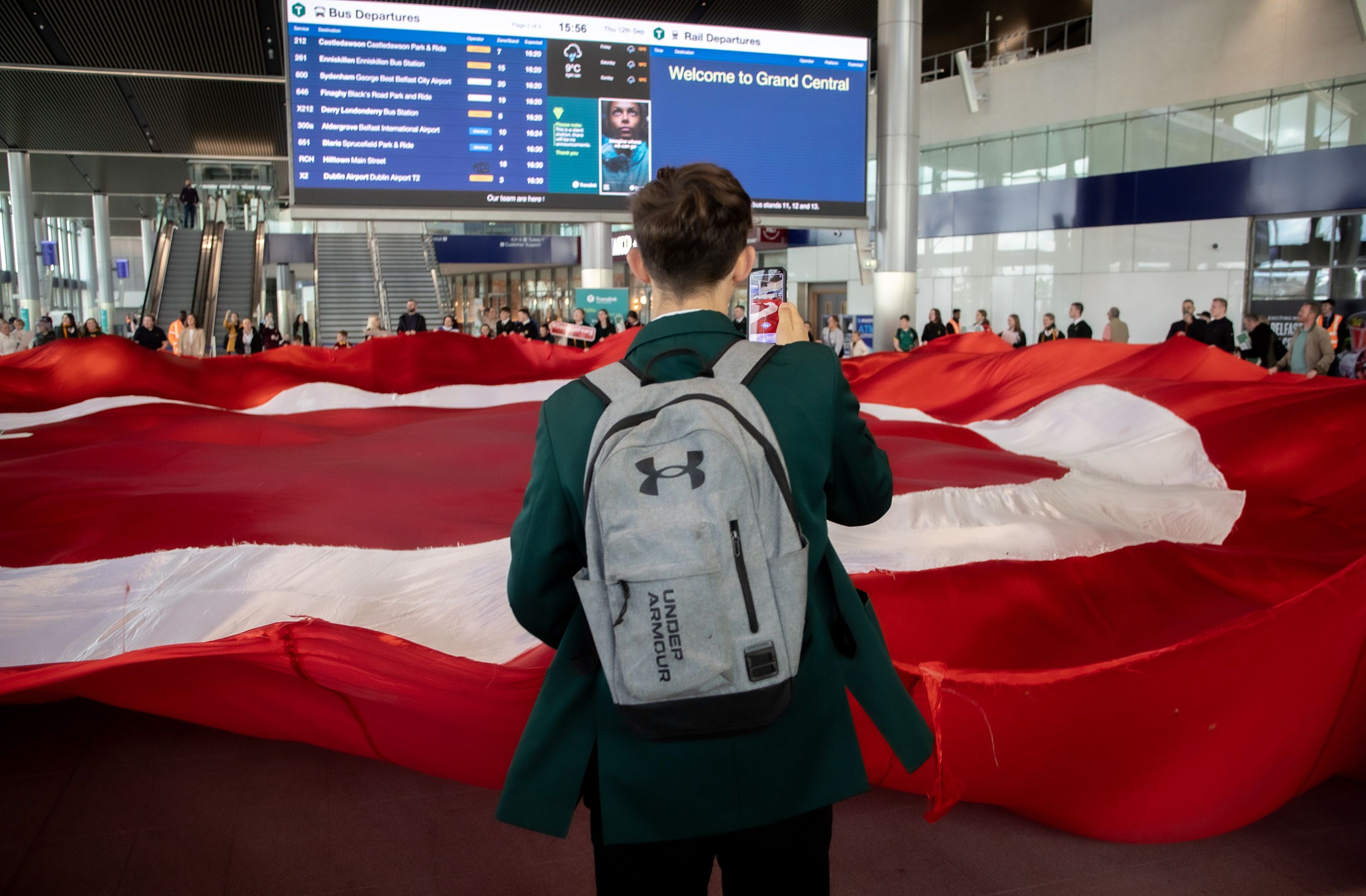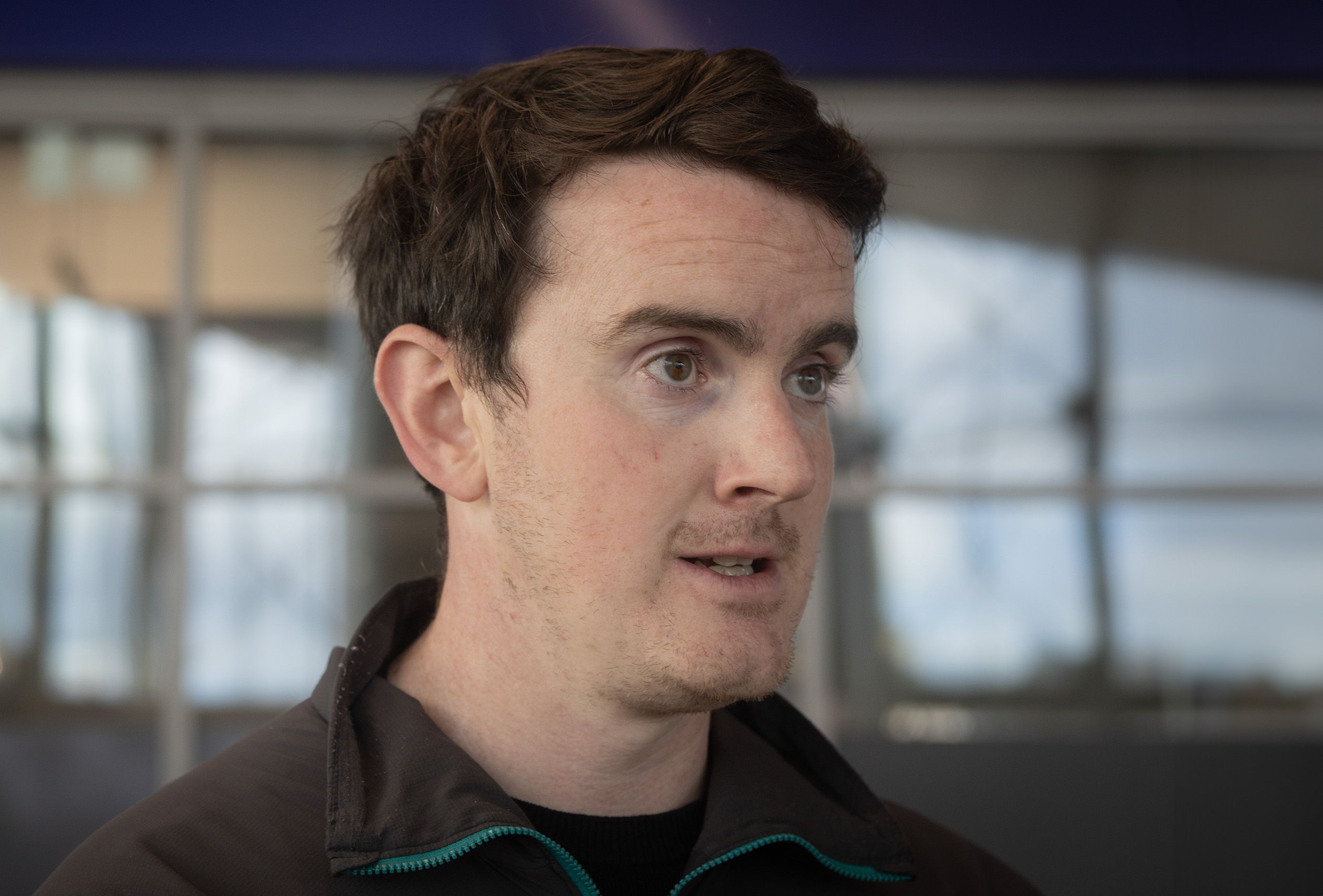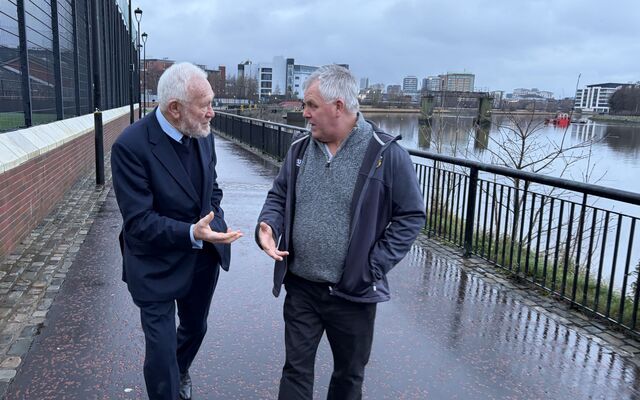IT has been a frustrating week for the Irish language community since word broke last Thursday that the new £340 million Grand Central Station in Belfast would be opening without bi-lingual signage. Then on Monday the Stormont Executive unveiled its draft Programme For Government without any mention of Irish.
That frustration was on show yesterday when language activists took over the concourse of the new Grand Central Station during rush-hour, unveiling a 70-foot red banner bearing the symbol of lobby group An Dream Dearg. Commuters looked on as speeches were made and musicians played traditional music. Calls were made for Infrastructure Minister John O'Dowd to intervene and order Translink to erect bilingual signage, something which he has previously advised Translink to do. In April this year, Belfast City Council also passed a motion calling on Translink to erect dual language signage at the new transport hub, the largest in Ireland.
One of the most galling aspects of the new station for Irish speakers is the new ticket machines which offer passengers a choice of English, Francais, Deutsch, Espanol and Italiano, but glaringly not Gaeilge. After all the ministerial and local government advice ahead of the station’s opening on Sunday, one of two things happened:
1. Translink didn't think of including Irish.
2. It made an active decision not to include Irish.
Both can be considered very significant errors.
Any language you want, except Gaeilge
Reflecting on the past seven days, Pádraig Ó Tiarnaigh from An Dream Dearg says it has been a “difficult week”.
“We have seen our exclusion on every single page of the Programme for Government. We have seen this centre open its doors to monolingual signage,” he said.
“We’ve been through all the diplomatic channels, we’ve met with ministers, we’ve met with chief executives, we’ve made our case. Belfast City Council have endorsed this (bilingual signage), the Minister has advised Translink to do this, Foras na Gaeilge – the Good Friday Agreement body – has advised Translink to do this and still they’ve said no, we will consider it.”
Pádraig, who took part in Thursday’s protest at Grand Central, said the Irish language community have “heard all these excuses time and time again”. He said at first Translink told An Dream Dearg that they couldn’t erect bi-lingual signage because there wasn’t a Minster for Infrastructure at Stormont. Then when a minister was appointed and advised Translink to go ahead with dual language signage, Translink now argues that it can't proceed without an Irish Language Commissioner, who has yet to be appointed.
“What we know is that the majority of public authorities will only move when they are compelled to do so, either by legislation, policy change or by ministerial directive,” said Pádraig.
“We’ve no confidence that Translink are going to move now out of the goodness of their own heart. They’ve proven over the last two years that they won’t do that, so the only avenue that we have left is to seek ministerial intervention and we’re calling on John O’Dowd to reflect on the commitments of the party and the Executive have made in terms of the Irish language, New Decade New Approach, Good Friday Agreement, St Andrews Agreement. If this centre can’t reflect this shared society, then we have big problems ahead.”
An Dream Dearg took over the concourse in the new Grand Central Station
Pádraig said he is confident that the decision to open the new station without bi-lingual signage can be reversed.
“We’ve written to the Minister as early as last week when we got word that this centre would be opening monolingually. We are due to meet him very soon. Translink informed us a few weeks ago that this would more or likely be their starting position on this and we challenged that in writing very strongly along with our colleagues in CAJ. We haven’t heard back from them.
“Translink are very clearly uncomfortable with this and very much at odds with their own international duties and I think that they know that at some stage they are going to have to move here and the community organising like this will put more pressure on them.
“I think that over time we will get a resolution to this.
“The Minister has to realise the longer this goes on, the more that public authorities will be looking to Translink and following their example and they’ll be saying, well if they can get away with a monolingual English-only approach then we can too.
“This is a watershed moment for policy here and practice because if this £340 million monolingual monster can open with English-only then why can’t anything else. So we have to challenge that precedent and we are very confident that we will do that and we will win.”







